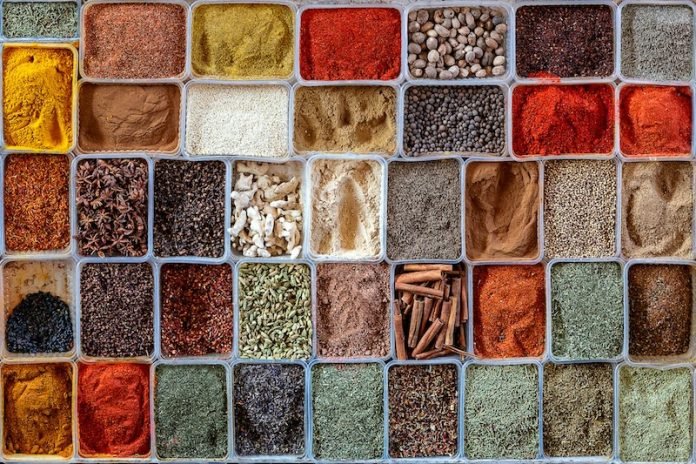
In the quest for natural ways to manage health, herbs and spices have taken center stage, particularly in their potential to lower high blood pressure.
This isn’t just folklore or wishful thinking; a growing body of research suggests that certain herbs and spices might indeed help in managing hypertension.
This article explores how these flavorful ingredients might offer more than just a taste boost to our meals—they could be a key to better heart health.
High blood pressure, or hypertension, is a common condition where the force of the blood against your artery walls is high enough that it may eventually cause health problems, such as heart disease.
The standard approach to managing high blood pressure includes medications, lifestyle changes, and diet modifications.
However, the interest in natural remedies has surged, with herbs and spices being at the forefront due to their ease of use and minimal side effects.
Several studies have investigated the potential benefits of herbs and spices in lowering blood pressure. For instance, garlic has received considerable attention.
Research has shown that garlic supplements can have a significant impact on reducing blood pressure in individuals with hypertension.
Garlic is believed to stimulate the production of nitric oxide, a compound that helps to relax blood vessels, thereby reducing blood pressure.
Another herb, hawthorn, has been traditionally used for heart-related conditions. Clinical trials suggest that hawthorn extract may improve heart function and lower blood pressure by dilating blood vessels.
Similarly, cinnamon, often sprinkled on oatmeal or used in baking, has been linked to lower blood pressure readings in people with diabetes, a group at high risk for hypertension.
Flaxseed, though not a spice, is often grouped with these natural remedies for its heart-healthy benefits. It’s rich in omega-3 fatty acids and has been found to reduce blood pressure significantly when added to the diet over several months.
The mechanism is thought to involve the improvement of arterial elasticity and reduction of inflammation.
Turmeric, with its active ingredient curcumin, has been celebrated for its anti-inflammatory and antioxidant properties.
Preliminary studies suggest that turmeric might improve blood vessel function, leading to lower blood pressure, though more research is needed to confirm these effects in the long term.
While these findings are promising, it’s important to approach the use of herbs and spices as a complement to, rather than a replacement for, conventional treatments for high blood pressure.
The impact of these natural remedies can vary from person to person, and their effectiveness may not be as immediate or pronounced as that of prescribed medications.
Moreover, individuals should consult with a healthcare provider before integrating significant amounts of any herb or spice into their diet, especially if they are taking blood pressure medication, to avoid potential interactions.
In conclusion, the potential of herbs and spices in lowering blood pressure adds an exciting dimension to dietary management of hypertension.
While not a standalone solution, their inclusion in a balanced diet, alongside regular physical activity and medical treatment, could offer a holistic approach to controlling blood pressure.
As research continues to uncover the health benefits of these natural ingredients, we may find ourselves reaching more frequently into the spice rack—not just for flavor, but for our heart health as well.
If you care about high blood pressure, please read studies about potatoes and high blood pressure, and top 10 choices for a blood pressure-friendly diet
For more information about high blood pressure, please see recent studies about impact of vitamins on high blood pressure you need to know, and the powerful link between high blood pressure and a potassium-rich diet.
Copyright © 2024 Knowridge Science Report. All rights reserved.



